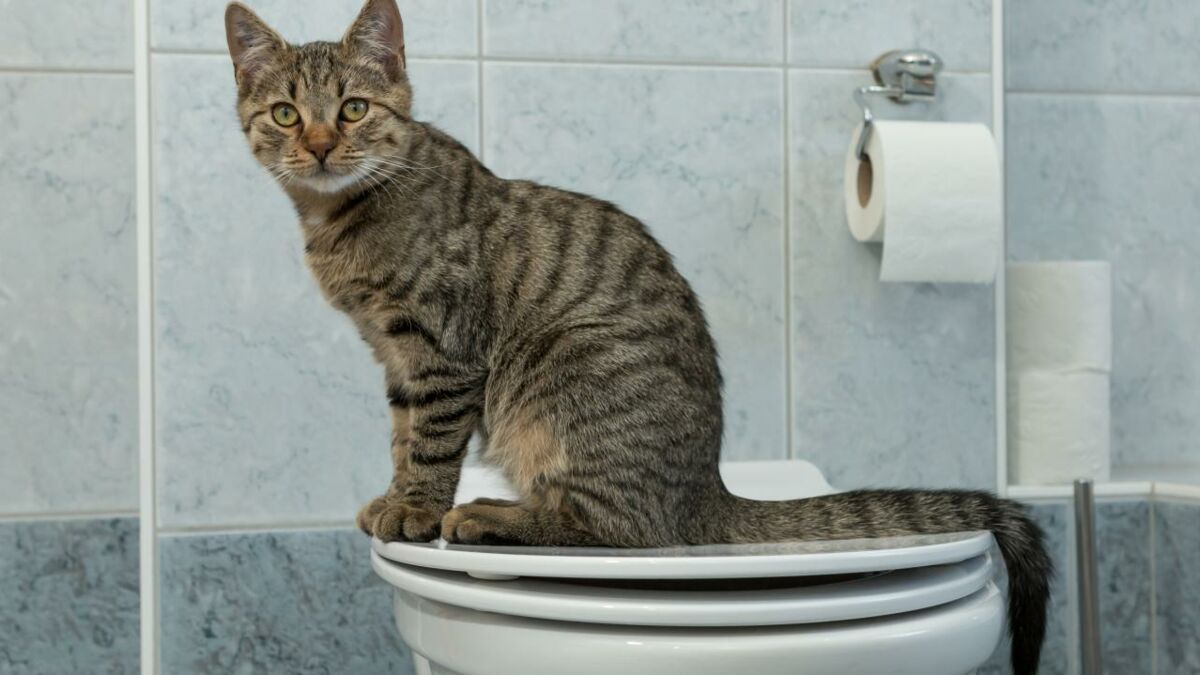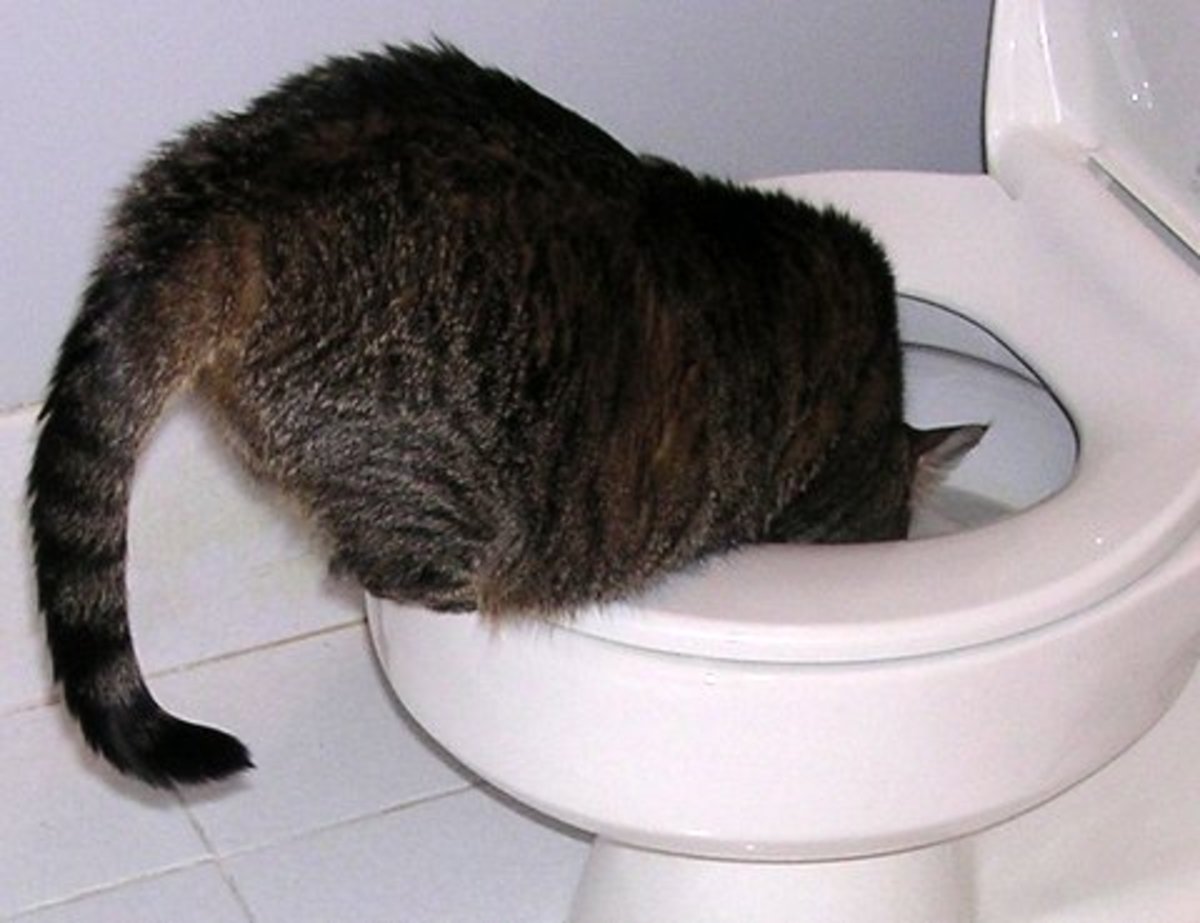This great article down below pertaining to Can You Flush Cat Poo or Litter Down the Toilet? is definitely informative. Have a go and make your own final thoughts.

Introduction
As pet cat proprietors, it's important to be mindful of how we get rid of our feline good friends' waste. While it might seem practical to purge feline poop down the bathroom, this practice can have destructive repercussions for both the setting and human health.
Alternatives to Flushing
The good news is, there are much safer and a lot more accountable means to deal with cat poop. Take into consideration the adhering to choices:
1. Scoop and Dispose in Trash
One of the most common approach of getting rid of cat poop is to scoop it right into a naturally degradable bag and throw it in the garbage. Make certain to utilize a specialized clutter inside story and get rid of the waste quickly.
2. Use Biodegradable Litter
Choose naturally degradable feline litter made from materials such as corn or wheat. These litters are eco-friendly and can be safely gotten rid of in the trash.
3. Hide in the Yard
If you have a backyard, take into consideration burying feline waste in an assigned location far from vegetable yards and water resources. Make sure to dig deep adequate to prevent contamination of groundwater.
4. Mount a Pet Waste Disposal System
Invest in a family pet waste disposal system particularly created for pet cat waste. These systems use enzymes to break down the waste, lowering odor and ecological impact.
Health and wellness Risks
Along with ecological concerns, flushing feline waste can likewise posture health risks to people. Feline feces might contain Toxoplasma gondii, a parasite that can trigger toxoplasmosis-- a possibly severe disease, especially for expectant females and individuals with damaged body immune systems.
Ecological Impact
Purging pet cat poop presents damaging microorganisms and bloodsuckers right into the water supply, posing a considerable danger to water ecological communities. These impurities can negatively impact marine life and compromise water high quality.
Final thought
Accountable family pet possession expands past supplying food and sanctuary-- it likewise entails proper waste administration. By avoiding purging pet cat poop down the commode and going with different disposal approaches, we can lessen our ecological footprint and safeguard human health and wellness.
Why Can’t I Flush Cat Poop?
It Spreads a Parasite
Cats are frequently infected with a parasite called toxoplasma gondii. The parasite causes an infection called toxoplasmosis. It is usually harmless to cats. The parasite only uses cat poop as a host for its eggs. Otherwise, the cat’s immune system usually keeps the infection at low enough levels to maintain its own health. But it does not stop the develop of eggs. These eggs are tiny and surprisingly tough. They may survive for a year before they begin to grow. But that’s the problem.
Our wastewater system is not designed to deal with toxoplasmosis eggs. Instead, most eggs will flush from your toilet into sewers and wastewater management plants. After the sewage is treated for many other harmful things in it, it is typically released into local rivers, lakes, or oceans. Here, the toxoplasmosis eggs can find new hosts, including starfish, crabs, otters, and many other wildlife. For many, this is a significant risk to their health. Toxoplasmosis can also end up infecting water sources that are important for agriculture, which means our deer, pigs, and sheep can get infected too.
Is There Risk to Humans?
There can be a risk to human life from flushing cat poop down the toilet. If you do so, the parasites from your cat’s poop can end up in shellfish, game animals, or livestock. If this meat is then served raw or undercooked, the people who eat it can get sick.
In fact, according to the CDC, 40 million people in the United States are infected with toxoplasma gondii. They get it from exposure to infected seafood, or from some kind of cat poop contamination, like drinking from a stream that is contaminated or touching anything that has come into contact with cat poop. That includes just cleaning a cat litter box.
Most people who get infected with these parasites will not develop any symptoms. However, for pregnant women or for those with compromised immune systems, the parasite can cause severe health problems.
How to Handle Cat Poop
The best way to handle cat poop is actually to clean the box more often. The eggs that the parasite sheds will not become active until one to five days after the cat poops. That means that if you clean daily, you’re much less likely to come into direct contact with infectious eggs.
That said, always dispose of cat poop in the garbage and not down the toilet. Wash your hands before and after you clean the litter box, and bring the bag of poop right outside to your garbage bins.
https://trenchlesssolutionsusa.com/why-cant-i-flush-cat-poop/

I discovered that piece of writing about Don’t flush cat feces down the toilet when browsing on the search engines. Sharing is caring. Who knows, you may very well be doing someone a favor. Thank you for your time invested reading it.
Get Quote